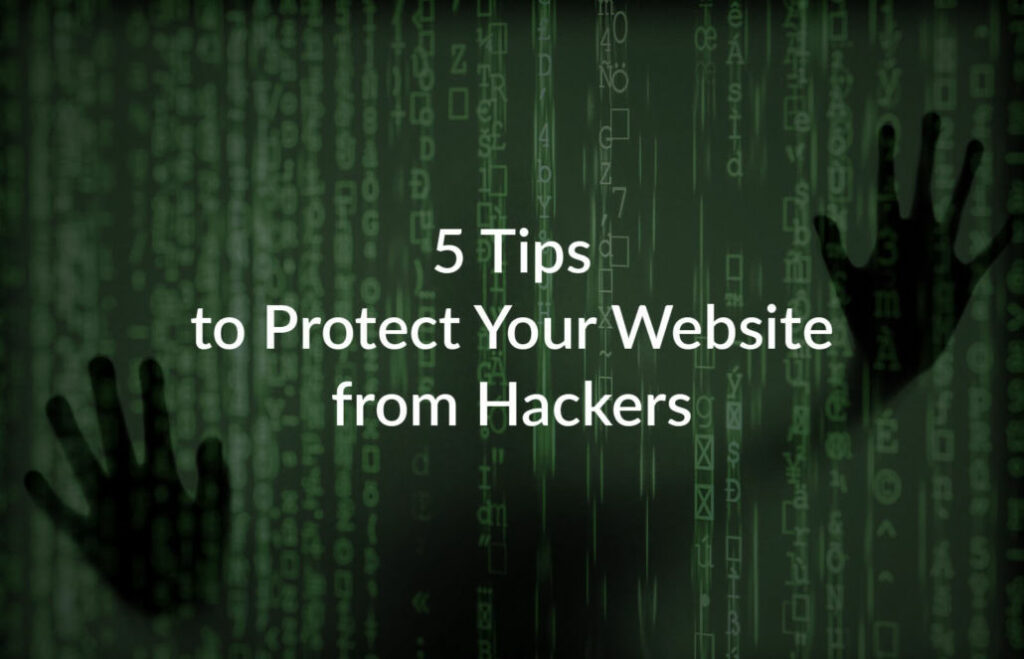If you own a webpage, nothing can be more depressing than the knowledge that a platform you spent eons developing has crumbled right before you thanks to the efforts of a hacker.
To avoid becoming a casualty of this, it’s a good practice to ensure that you take time to shield your website using our 5 point action plan. As we delve into the various ways to protect the data on your website, we’ll also share actionable intel on how to conduct checks to see just how secure your website is.
Having a data back-up system in place is a good idea. Even then, protection is always a better alternative. Let’s dive right into the content.
1. Install Security Plugins
Right after you update every other component of your website, you need to take things up a notch by installing security plugins to lower the chances of your website getting hacked.
If your website runs on WordPress, you can review security plugins like Bulletproof Security and iThemes Security which do an impressive job of shielding the content on your page from leaking out. They are able to do so by masking any security vulnerabilities from hackers and thereby foiling any ill motives.
On the other hand, if your website runs on some other HTML page or CMS-managed platform, you can take a quick review at SiteLock. Over the years, SiteLock has become known as a great security tool for sealing loopholes and providing tracking tools for everything from vulnerability identification to malware detection. It’s regarded as a prized asset among those who are keen on ensuring that there are no data leaks from their webpages.
2. Make use of HTTPS
As someone who’d frequently on the web, you may already be on the lookout for that green https browser bar every time you check out a website. If not, that’s what you should be focusing on.
HTTPS websites are usually an indicator that all is clear for you to conduct financial transactions on such platforms.
Recently, Google Chrome released a new security update which alerts visitors about pages lacking installed SSL certificates. This SSL certificate is of the essence in securing the transfer of personal and financial information over the web.
It’s also worth noting that search engines are aggressively pushing the campaign for a safer internet where information exchange can occur without inhibitions. If you’re looking to be in good books with them and rank higher in search results, it’s best to make the change and implement the new security protocols necessary for your site to become HTTPS approved.
The extra level of encryption offered by an SSL certificate is a great investment for your business since you’ll be able to reap the long term benefits.
3. Update Your Website Platform and Software
By updating your plugins, apps, scripts, and content management system on the regular, you’ll be taking the next step in protecting your website from hackers and malicious individuals.
Doing this is necessary because most of these tools are open-source software solutions which means that their code is accessible by all and sundry. Hackers who are intent on bringing your brand down can easily pore over this code and exploit all the security vulnerabilities they can spot and seize control of the website.
If you’re running a WordPress website, you can check the dashboard every time you log in for a peek at whether there’s a notification about an available update.
4. Secure Your Passwords
As alluring as having a universal password is, it’s not the best way to go about website security. The most popular password in the world today is 123456, if you have something along those lines, then it’s best to act quickly and implement a change today.
You need to take some time in figuring out the most unique, secure password that will be easy for you to recall. Incorporating special characters, numbers, and letters is a great way to go about it.

Importantly, you need to keep clear of obvious targets like birthdays, and pet names. This is because these are usually the first things hackers typically inquire about as they prepare to launch an attack.
A single point of weakness is all it takes for all the cards to come tumbling down. As such, you need to take necessary precautions.
5. Use Parameterised Queries
SQL injections are among the most popular website hacks in the world. These attacks arise when you have a web form that allows visitors to your webpage to feed you information.
If the parameters in the field of entry are too open, it’s very possible that a hacker will be able to key in the code and gain access to your database. To avert scenarios like data loss, it’s necessary to shield your site from this.
By using parameterised queries, you can inhibit the playroom for hackers to exploit and plant their code into your system.










